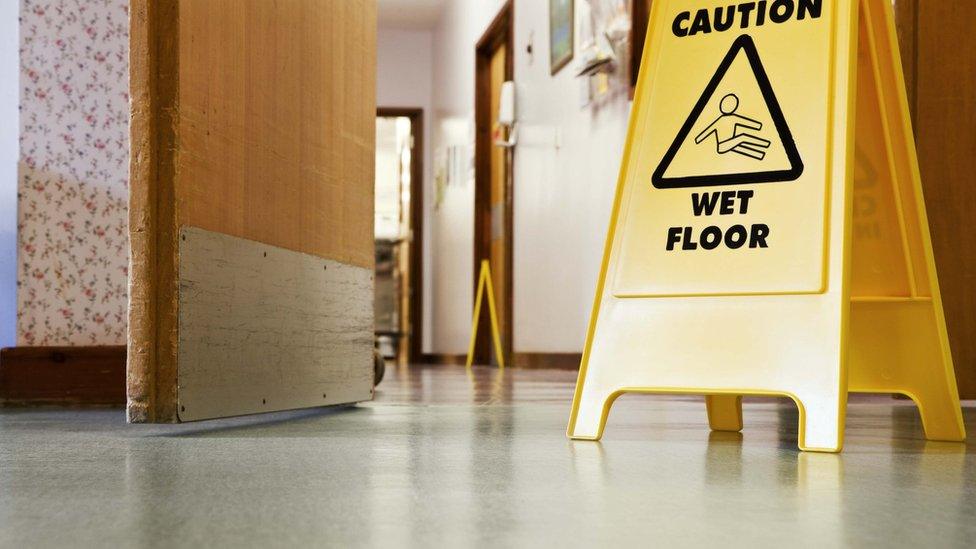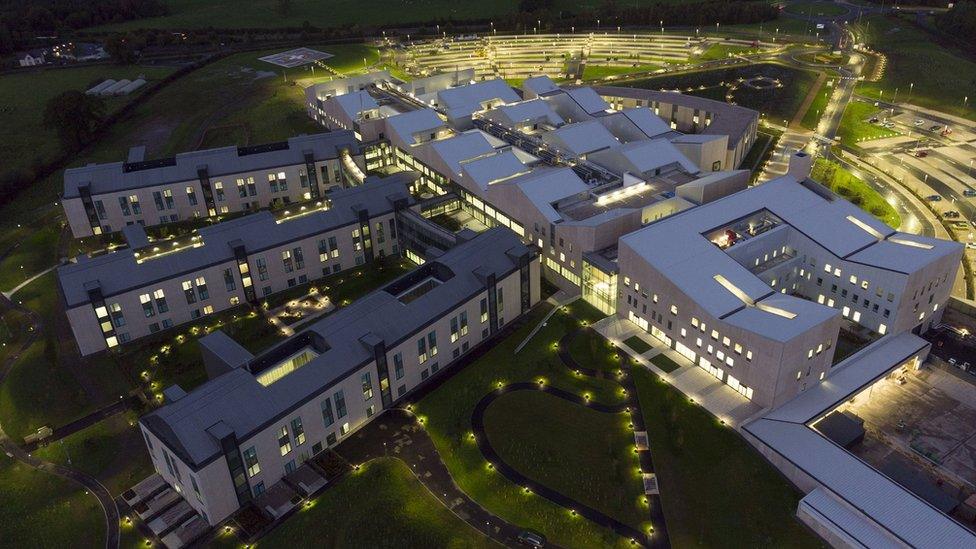NHS Dumfries and Galloway 'adverse events' rise more than 20%
- Published

Most of the adverse incidents involved trips or falls, but 125 had the potential to cause death or serious harm
The number of "adverse events" reported by NHS Dumfries and Galloway has gone up more than 20% in the past year.
There were 6,423 incidents reported that could have jeopardised patient safety.
Most of them were minor - involving slips, trips or falls - but 125 were "significant" with the potential to cause death or serious harm.
The health authority said the rise was the result of attempts to encourage staff to report such incidents.
Adverse events in the NHS have three levels of severity - the lowest being near misses and other incidents that have potential to cause harm.
At the other end of the scale are cases that have the capacity to cause serious harm or even death.
'Perception issue'
In 2017-18 the number of adverse events recorded by the health board was 5,288, a rise of more than 1,000 on last year.
The number of "significant" incidents also went up from 72 to more than 100.

Nurse director Eddie Docherty said NHS Dumfries and Galloway had been encouraging staff to report incidents
Nurse director Eddie Docherty said: "We can trace our adverse events very carefully and have been very, very actively promoting the recording of them."
He said there had been a particular focus on the most serious cases.
"Over the last three to four years we have put a significant amount of effort into particularly that type of adverse event because we know healthcare isn't as safe is it could be," he said.
He said the more "information and scrutiny applied" the better the system would become.
"I think there has also been a perception issue - people didn't know that that was expected or that they were able to do so," he added.
"I think that's why we've seen significant step change over a number of years as we have really promoted that aspect of healthcare."